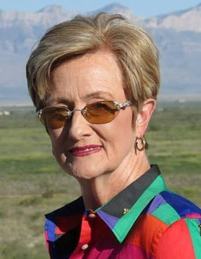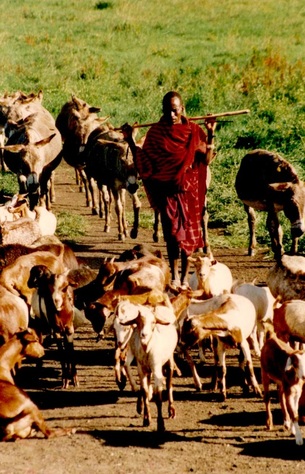 Kay Karr
Kay Karr A greeting to all the citizens of the world
by Kay Karr
Retired Superintendent & President of Responsive Learning
The story of the Masai warriors of Africa and their practice of evaluating the “state of their union” or the state of their collective tribes focuses on one question which is asked of each tribal leader. That one question is, “How are the children?” The responses to this simple question determine the direction for future decisions and actions. If all leaders cannot respond with the response, “All our children are well”, a national emergency is declared and all available resources are focused on addressing the problems preventing them from being able to reply, “All our children are well”.
 © Masai Warrior Photography by Phillip Martin
© Masai Warrior Photography by Phillip Martin As a public school superintendent for many years, I have long recognized that children are our nation’s most valuable resource and our greatest responsibility. And yet, in the United States, we are far from being able to say, “All our children are well.” After being personally involved in multiple emergencies and hazards, both natural and manmade, I have grown to realize that in this great nation many of our children are often not safe.
As educators, we have long accepted the mission of educating our nation’s children. However, many of us who make up the very diverse population that constitutes the United States of America, have failed to recognize that the first priority we have is to keep our children safe and provide a safe environment that is supportive and nurturing so that they can learn.
Upon hearing the story of the Masai greeting for the first time, I became convinced that if we focused on the well-being of our children, we would as a society and a nation leave a meaningful legacy behind. Their traditional greeting, “Kasserian ingera,”means “And how are the children?” The expected response is, “All the children are well.” Life is good. Even in the midst of the day-to-day struggles for existence, our most important responsibility is to keep “ALL our children well.”
As educators, we have long accepted the mission of educating our nation’s children. However, many of us who make up the very diverse population that constitutes the United States of America, have failed to recognize that the first priority we have is to keep our children safe and provide a safe environment that is supportive and nurturing so that they can learn.
Upon hearing the story of the Masai greeting for the first time, I became convinced that if we focused on the well-being of our children, we would as a society and a nation leave a meaningful legacy behind. Their traditional greeting, “Kasserian ingera,”means “And how are the children?” The expected response is, “All the children are well.” Life is good. Even in the midst of the day-to-day struggles for existence, our most important responsibility is to keep “ALL our children well.”
“Kasserian ingera”?
How will you respond?
What will our legacy be?
How will you respond?
What will our legacy be?
Link to the story of the Masai Warriors as it originally appeared
"And how are the children?"
"And how are the children?"
Kay Karr is a founding member of the Safe to Learn Advisory Council. She has an extensive background in the field of education. She has served the public as a classroom teacher, elementary principal, junior high and high school principal, and then 17 years as superintendent, serving in a wide range of district sizes, locations, and wealth. While in the superintendency, she served for eight years as a member of the Texas Telecommunications Infrastructure Fund (TIF) Board – a governor-appointed state board responsible for the distribution of $1.5 billion to schools, universities, public libraries, and not-for-profit health facilities.Upon retiring, or as she describes it, “redirecting”, she worked with Voyager Learning, helping to develop online learning opportunities for teachers and administrators across the nation. Shortly thereafter Responsive Learning was founded. Responsive Learning is dedicated to improving instructional effectiveness by connecting teachers to leading experts through on demand, personalized and differentiated professional learning.
Teachers Reference: Mural Man Phillip Martin Maasi Warrior

 RSS Feed
RSS Feed